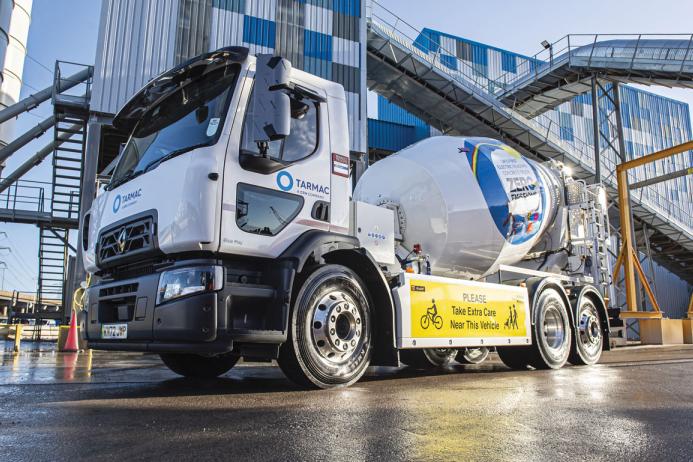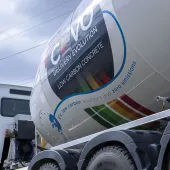Net zero: what gets measured, gets managed

First published in the July 2023 issue of Quarry Management
By Mark Lewis, procurement manager – capex and sustainability, Tarmac
It is an old cliché: ‘What gets measured, gets managed’. Yet in the transition to net zero, this adage from the 1950s is highly relevant to understanding carbon emissions data for all companies and their supply chains today.
In business, measurement and data give you the information you need to make informed decisions and ensure you achieve what you set out to do. But the data we need in a collaborative and complex industry like construction is often held by supply chain partners.
Tarmac have set a clear objective to be a net-zero business, but we cannot deliver this in isolation from customers and suppliers. Success will require continued behavioural, operational, technological and data-led changes to our business.
Our targets are based on reducing Scope 1, 2 and 3 carbon dioxide (CO2) emissions. Scope 1 are direct CO2 emissions from the sources we own or control – such as the fuels used in our operations and vehicles. Scope 2 covers CO2 emissions such as the electricity we buy.
We are also proactively working with our supply chain to understand our Scope 3 emissions, the indirect emissions that we are responsible for up and down the value chain. This includes how we work together to reduce CO2 across the whole life cycle, from the materials, goods and services we purchase, from our operations and transport, right through to the construction process, in-use performance and end-of-life.
The reality is that Scope 3 emissions are not easily ring-fenced and are also much more difficult to track accurately. With Scope 1 and 2 emissions, a company typically has the source data needed to convert direct purchases of gas and electricity into a value in tonnes of greenhouse gases (GHGs).
For many manufacturing businesses, Scope 3 emissions account for a large percentage of their carbon footprint. That is why we are taking early action together with suppliers to understand how we can work collaboratively to understand and, ultimately, reduce Scope 3 emissions.
The willingness of suppliers to support and share Scope 3 emissions data is often predicated on their own net-zero ambitions, a buyer’s influence and the opportunity to unlock mutually beneficial low-carbon solutions. A challenge is that there are a number of ways to collect and analyse GHG emission data and approaches can vary from company to company.
We are working with our suppliers as part of the Tarmac decarbonization club, which now comprises 15 suppliers actively working on the net-zero transition to develop practical and deliverable solutions that can be implemented across construction and infrastructure projects.
The response from many of our suppliers has been very positive and many within Tarmac’s decarbonization club are working with us to share data and actively identify opportunities to tackle Scope 3.
Our ultimate aim is to engage our entire supply base across all procurement categories to better understand how together we can take action to reduce Scope 3.
Enlighted procurement is key to this; it is about creating a high-performing supply chain, fostering a great customer and supplier dynamic, as well as understanding current emissions baselines and sharing ideas and insight.
The journey to tackling Scope 3 is undoubtedly challenging, but together with our supply chain we are making progress which will enhance transparency and traceability. In the long term it will reduce emissions for both Tarmac and our suppliers.
Subscribe to Quarry Management, the monthly journal for the mineral products industry, to read articles before they appear on Agg-Net.com








